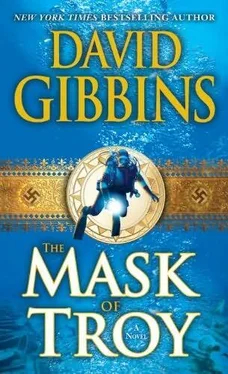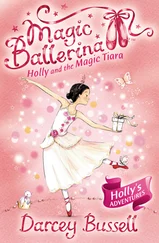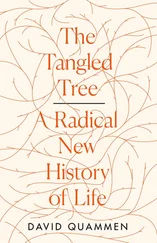David Gibbins - The Mask of Troy
Здесь есть возможность читать онлайн «David Gibbins - The Mask of Troy» весь текст электронной книги совершенно бесплатно (целиком полную версию без сокращений). В некоторых случаях можно слушать аудио, скачать через торрент в формате fb2 и присутствует краткое содержание. Жанр: Триллер, на английском языке. Описание произведения, (предисловие) а так же отзывы посетителей доступны на портале библиотеки ЛибКат.
- Название:The Mask of Troy
- Автор:
- Жанр:
- Год:неизвестен
- ISBN:нет данных
- Рейтинг книги:3 / 5. Голосов: 1
-
Избранное:Добавить в избранное
- Отзывы:
-
Ваша оценка:
- 60
- 1
- 2
- 3
- 4
- 5
The Mask of Troy: краткое содержание, описание и аннотация
Предлагаем к чтению аннотацию, описание, краткое содержание или предисловие (зависит от того, что написал сам автор книги «The Mask of Troy»). Если вы не нашли необходимую информацию о книге — напишите в комментариях, мы постараемся отыскать её.
The Mask of Troy — читать онлайн бесплатно полную книгу (весь текст) целиком
Ниже представлен текст книги, разбитый по страницам. Система сохранения места последней прочитанной страницы, позволяет с удобством читать онлайн бесплатно книгу «The Mask of Troy», без необходимости каждый раз заново искать на чём Вы остановились. Поставьте закладку, и сможете в любой момент перейти на страницу, на которой закончили чтение.
Интервал:
Закладка:
A light flashed on inside the room. Mayne looked through the window.
He saw something too horrible for words.
The door swung open, and he lurched forward, bringing the knife up, deep into the heart of his assailant. The pistol cracked. They fell together.
Then blackness.
PART 3
13
R ebecca Howard stood on the gloomy landing of the flat in front of the chipped white door and straightened her fleece, then eased off her backpack and waited hesitantly, glancing back at Dillen. He reached the top of the creaky wooden stairs and smiled at her. They had arrived in Bristol half an hour before, on the train from Paddington in London, having landed at Heathrow airport from Istanbul soon after dawn that morning. In the taxi from the station Dillen had called Jack on Seaquest II to confirm their arrival and his plan to escort Rebecca back to the hotel in London, where she would meet her school party that evening for her trip to Paris. He shivered slightly, pushing his hands into his coat pockets. The old house was one of a row of villas off Royal York Crescent, a magnificent location overlooking the city and the Avon Gorge but exposed to the westerly winds coming off the Atlantic. For once, at least, it had not been raining, and it promised to be a beautiful June day.
He felt the cold because he was tired, and he looked forward to the warmth he always found here, sitting back on the dilapidated sofa and cradling a cup of hot chocolate in front of the gas fire, relishing the familiar smells of old books and coffee and drying clothes. It felt as if he were returning home. His parents had been killed by German bombing in London when he was only five years old, and Hugh had taken him under his wing at boarding school and offered this place as a home. There had been other young people like Dillen, and they had grown up together as an extended family. Every time Dillen mounted these stairs he felt as if he were on vacation from university, bursting to tell Hugh what he had seen and done, to introduce him to new friends. He glanced at Rebecca, and remembered with a jolt that more than fifty years separated them. He had made this same pilgrimage with her father when Jack was her age, almost thirty years before.
Rebecca gestured back down the stairs. ‘Does he always leave the front door unlocked?’ she whispered.
‘He usually has young people staying here,’ Dillen said. ‘Always has done, since I was a boy. They used to be pupils like me from Clifton College and Bath School for Girls, orphans from the war with no other family to stay with out of termtime. We had the other rooms off this landing, the doors behind you. Nowadays the net’s wider, I think. Street kids. Come on, knock on the door. He’ll be waiting for us.’
Rebecca raised her hand and rapped on the door. A muffled voice shouted, ‘Come in!’ She turned the knob, pushed the door and stepped inside. Dillen slipped in behind her and shut the door. Hugh was crouched with his back to them over the electric ring in front of the gas fire. The warmth was lovely, just as Dillen remembered it. The room was large, the bedroom of a spacious Victorian townhouse, with a shuttered window that overlooked an untidy garden with large trees, the rear windows of the adjacent row of houses just visible beyond. In the centre of the room was the old sofa-bed, folded back with the bedding stowed beneath, and beside it the battered oak table that was the only gift Hugh had wanted from the school on his retirement, scarred with the graffiti of generations of boys he had taught Greek and Latin. The walls were buried under books, thousands of them, in cases and tottering piles, the spaces in between filled with old prints and drawings.
Everything was as Dillen remembered it. On the mantelpiece was Edward Dodwell’s 1821 print The Gate of the Lions at Mycenae, the image that had so fired his imagination when he had first sat here as a boy. Beside it was the black-and-white photo from the Second World War. It showed a tanned, good-looking young man leaning languidly against the bonnet of a jeep, desert sand in the background, goggles hanging around his neck and a holster slung low over his shorts, cracking a smile at the camera. He was wearing the ersatz uniform of an irregular soldier, a tattered old jumper that made him look like a schoolboy, yet he exuded the confidence of a seasoned veteran. It was the picture of a man who had been forced to grow up fast, been toughened before his time. At the bottom was a faded signature, the words Peter, Egypt 1941 clearly visible, in the same handwriting as the dedication to Hugh in the volume of Pope’s Homer that Dillen had given Rebecca at Troy the day before.
Hugh took the pot off the electric ring and poured the contents into three mugs, then picked up a spoon and stirred them. He watched the steaming liquid for a moment, then picked up two of the mugs and turned towards them. ‘Perfect timing,’ he said, looking intensely at Rebecca, a twinkle in his eye. ‘It’s a fine art, you know. If you’d arrived a moment later, this would have been ruined.’ He had an educated accent of the 1930s, with clipped vowels but a softness that came from his West Country childhood. He was wearing corduroy trousers, threadbare in places, an oatmeal-coloured jumper with holes in the elbows and a frayed silk scarf tucked in around his neck. He had thick white hair, swept back and neatly cut, and he was clean-shaven. Dillen thought he was a strikingly handsome man, and he had seemingly lost none of his vigour, despite having passed his ninety-second birthday a few months before. Rebecca nodded politely. ‘My dad told me about your hot chocolate. He said it was the best ever.’
Hugh smiled back at her. ‘I do apologize. I’ve been rude. But I couldn’t take my eye off the pot.’ He held out the two mugs. ‘Hello, Rebecca. Your dad has told me all about you. And hello, James. I can’t believe what you told me on the phone. Marvellous discoveries. Marvellous. That cup from the shipwreck, with the word for king. You really think it could be Agamemnon? And the painting of the lyre-player with that word Homeros. Quite astonishing. It really puts the fire under our translation project.’
Rebecca took the mug and shook Hugh’s hand, and Dillen did the same. ‘Hello to you too, Hugh,’ he replied warmly. He nodded at the papers and manuscripts piled on the table. ‘How goes the war?’ Hugh followed his gaze, then exhaled forcefully, stooped down and picked up the third mug. He stood with his back to the fire, legs apart, his free hand behind his back, and took a sip from his mug. ‘The war,’ he replied, ‘goes slowly. Too damned slowly for my liking. It’s those wretched fragments of the Cypria in the Trojan epic cycle. I just can’t make up my mind whether they’re genuine Homer or not. There’s Homer in them, no doubt about it. But I just can’t say whether it’s the poet himself, or some later pastiche of bits and pieces that survived down to the Hellenistic period, thrown together to look plausible. I’m completely stumped. I can say that to you, but not to my editor at the university press. My siege, James, is in need of a Trojan Horse.’
‘Then I can be your Odysseus.’ Dillen took a large envelope out of the laptop case he had been carrying, stepped over to the table and dropped it on the pile of manuscripts. ‘As I promised.’
‘You’re certain you want me to do this?’
‘Never more so.’ Dillen turned to Rebecca. ‘I’ve asked Hugh to help me translate the Ilioupersis. After spending time with your dad and Maurice over the past week, it became clear to me that the translation is about more than a clue to an ancient shipwreck. The fall of Troy, this text, is the backdrop to everything we’re doing out there. What with my work on the excavation, it was going to take me a month or more to get the text done. Jeremy’s too busy, and he doesn’t have the expertise in early Greek. With Hugh’s help, it might get done in a week, maybe ten days.’
Читать дальшеИнтервал:
Закладка:
Похожие книги на «The Mask of Troy»
Представляем Вашему вниманию похожие книги на «The Mask of Troy» списком для выбора. Мы отобрали схожую по названию и смыслу литературу в надежде предоставить читателям больше вариантов отыскать новые, интересные, ещё непрочитанные произведения.
Обсуждение, отзывы о книге «The Mask of Troy» и просто собственные мнения читателей. Оставьте ваши комментарии, напишите, что Вы думаете о произведении, его смысле или главных героях. Укажите что конкретно понравилось, а что нет, и почему Вы так считаете.












